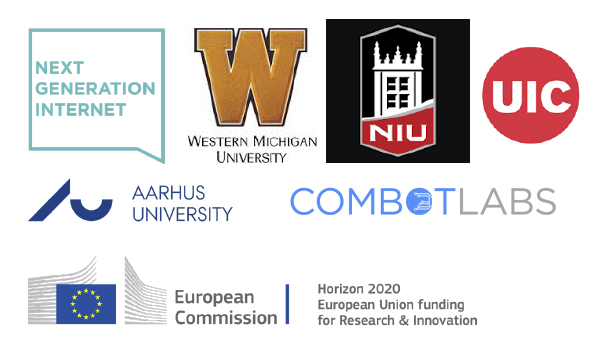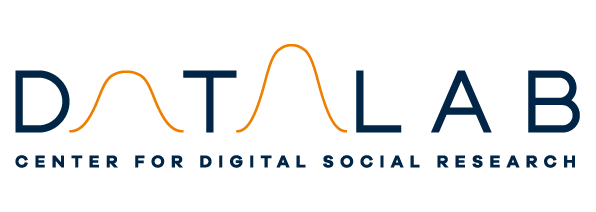Future challenges in human-machine communication
Leading scientists in internet research discuss future challenges in human-machine communication

As technology emerges in every domain of our everyday lives, we increasingly need to communicate with machines and not only humans. How this will affect our social lives and societies was under debate when 45 internet researchers met at the preconference workshop “Human-Machine Communication in the Next Generation Internet” at this year’s AoIR conference in Montreal.
The AoIR conference brings together hundreds of academics, researchers, graduate students and other participants for an interdisciplinary, multi-methodological look at the internet. It is a key event within the internet research community and is organized by the Association of Internet Researchers (AoIR) – a huge international academic association and member-based support network founded in 1998.
This year’s conference took place on October 10-13 in Montreal, Canada and had more than 500 participants. The day before the conference opened, a great number of participants joined in preconference activities to discuss shared issues and future research of importance.
The preconference workshop “Human-Machine Communication in the Next Generation Internet” aimed to encourage discussions of how people communicate through and increasingly with emergent technology which is designed to be social and intelligent (and consequently more humanlike): algorithms, artificial intelligence, social robots, chatbots, automated news-writing programs, and other related technologies.
More specifically, the workshop took its point of departure in the following questions:
- What does it mean for scholars of technology that the medium is now the message and the messenger as technologies are designed increasingly to interact with people and/or have some degree of agency?
- How do such scholars unfold layers of ontologies in these technologies, and how do they account for them? How do they shift their focus from studying interactions through technology to studying interactions with technology? And how do they study the individual, social, and cultural implications of emerging technologies which increasingly look and act like humans?
- What theories can they draw upon to inform research when so much of their scholarship, even scholarship focusing directly on the medium, evolved in a world where only humans communicated? What methodologies are suitable to investigate this shift empirically?
The workshop was initiated by eight enlightening talks focusing on different topics that framed the further discussions in the workshop. These talks were given by acknowledged internet scholars within the field of human-computer communication and posed questions which are important with regard to future research.
Theme 1: Machine Learning and the Brain of AI Machines
Associate Professor Anja Bechmann introduced the first theme by presenting her current research project: “A pragmatic theory of Social AI” – a project that seeks to understand ‘the social’ in AI and how sociality can be incorporated into machine learning models for social media in order to induce contextual awareness as well as fair decision and classification[NW1] .
Theme 2: Ontologies and the Nature of Humans and Machines
The second theme was introduced by Professor Autumn Edwards, whose research revolves around questions concerning the way in which people respond to computers, which communicative scripts they use, and how these scripts differ from or are similar to the scripts deployed when responding to humans.
Theme 3: Human-Machine Communication in the Classroom
Based on his research, Professor Chad Edwards gave a talk on how computers are increasingly used as partners rather than tools in the classroom. This shift gives rise to questions concerning the type and role of the computer-pupil and computer-teacher partnerships taking place, and how machines can be used to support teaching in the best possible way.
Theme 4: Social Robots and Privacy
Associate Professor Christoph Lutz gave a talk reflecting his research interest in the social, legal, and ethical implications that robotics implies. Lutz made the workshop attendees aware that robots collect a lot of data and affect the social sense and sense of belonging of humans, thereby giving rise to a great number of issues and questions of importance.
Theme 5: Social Robots, Moral Agency and Trust
The fifth theme of the workshop discussion was introduced by Associate Professor Jamie Banks. It concerned questions of how people relate to social robots and “adopt” them into their social lives:
What is the connection between the moral agency that social robots convey and the kind and degree of trust that people place in them? How do people decide whether a robot is good or bad?
Theme 6: Machines as Partners and User-Interaction Design
Associate Professor Rhonda McEwen introduced the workshop attendees to the sixth theme and with it her reflections on the role that the user and the machine respectively play in user-machine communication. For instance, McEwen emphasized how the user’s understanding of the machine may affect the communication between the two.
Theme 7: Social Robots as Society Members and Critical Considerations
The seventh talk concerned the role of social robots in society at a more general level. It was given by Distinguished Professor Steve Jones, who raised questions such as: How do we get along with machines? If social robots become members of society, what will be the consequences? Do machines actually communicate, or is it only humans who can claim to do communication?
Theme 8: Human-Computer Communication with Artificial Agents
Lastly, Assistant Professor Andrea L. Guzman introduced her research into artificial agents and automated journalism, including a number of interesting questions: How do people make sense of technology that they can hear but not see? How are social relationships being re-configured by artificial agents such as Siri? What does it mean to society and its members to have a program writing news? What topics should such programs write about from an ethical point of view?
Despite the diverse research interests of the people attending the workshop, there was a clear consensus that internet research must try to keep up as patterns and processes of communication change concurrently with emergent technologies. Interdisciplinarity is vital, the attendees agreed. However, the question of how interdisciplinary research should be carried out in the best possible way remained unresolved.
The Human-Computer Communication workshop was organized by the eight speakers with Andrea L. Guzman as the head organizer. It was sponsored by EU Next Generation Internet (www.ngi.eu) along with Aarhus University (www.datalab.au.dk); Social Robotics Labs (www.combotlab.org); and Shirley Papé Chair in Emerging Media, School of Journalism and Communication, University of Oregon.
For more information about the Association of Internet Researchers and the AoIR conference, please visit www.AoIR.org.


